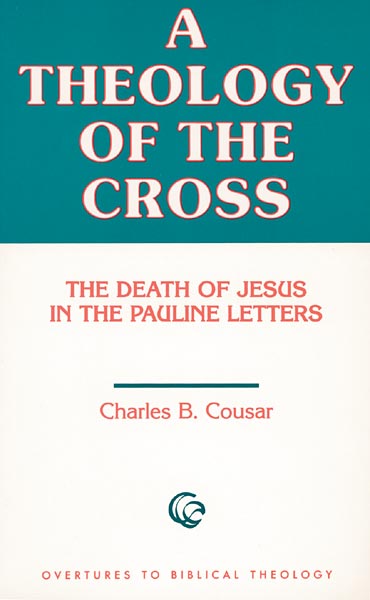A Theology of the Cross: The Death of Jesus in the Pauline Letters
In Paul's epistles the crucifixion story
reveals a God who is free and in no way
bound by human categories or expectations.
Yet God in Christ chooses to be engaged in
the very depths of the human predicament.
The message of the crucifixion is that God's
power is manifested in weakness, not in
strength. The author believes that this
"weakness as strength" should be the focal
point of the church's identity. However, a
celebration of weakness is in complete
opposition to traditional American beliefs
in personal strength and a powerful church.
"Ernst Käsemann ... has written on the theme [of the cross] most poignantly and penetratingly. Because the cross is endlessly relentless in its claim and restless in its critical voice, however, even Käsemann's rendering is not final.
"Cousar's book demonstrates that we can and must move beyond even Käsemann in our own obedient act of understanding and response to the cross. ... Cousar's careful adn acute exposition shows effectively that the cross cannot be contained in such a single category, but functions as a norm and singular definitional voice on a broad range of theological, interpretive, and ethical issues."
—from the Editor's Foreword, by Walter Brueggemann
"Ernst Käsemann ... has written on the theme [of the cross] most poignantly and penetratingly. Because the cross is endlessly relentless in its claim and restless in its critical voice, however, even Käsemann's rendering is not final.
"Cousar's book demonstrates that we can and must move beyond even Käsemann in our own obedient act of understanding and response to the cross. ... Cousar's careful adn acute exposition shows effectively that the cross cannot be contained in such a single category, but functions as a norm and singular definitional voice on a broad range of theological, interpretive, and ethical issues."
—from the Editor's Foreword, by Walter Brueggemann
- This item is not returnable
- Ships in 2 or more weeks
-
Quantity discount
- # of Items Price
- 1 to 9$29.00
- 10 or more$21.75
$29.00
